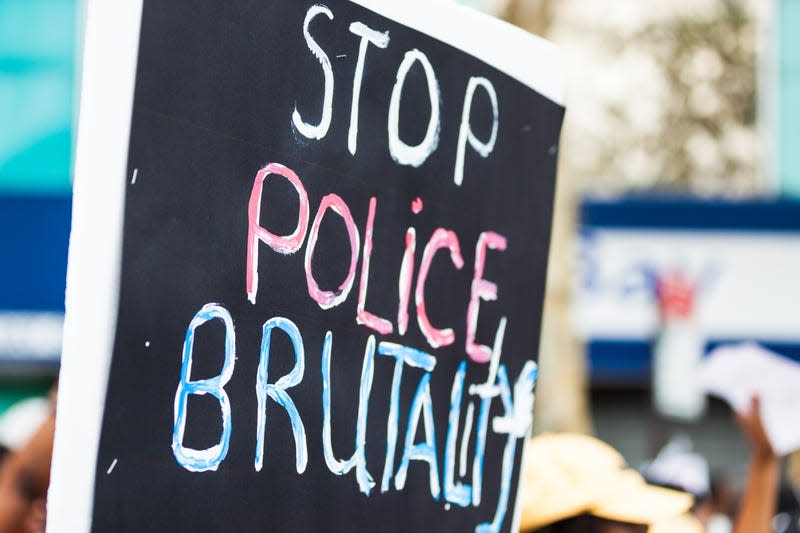Black People Beware: These States Are Blocking Us From Video Recording Police Brutality

- Oops!Something went wrong.Please try again later.
Holding police accountable for unnecessary violence toward Black people is nearly impossible without video evidence. That was the case more than 30 years ago in the shocking footage that showed cops beating the hell out of Rodney King (though a mostly white jury acquitted the officers), and more recently, with the cellphone video of the 2020 police murder of George Floyd.
But if some states have their way, capturing footage of police brutality will be more difficult, if not impossible.
On Tuesday, Louisiana joined several other Republican-controlled states in passing legislation authorizing a “buffer zone” between officers and bystanders with cameras.
WWL-TV reports that hard-line conservative Louisiana Gov. Jeff Landry signed a bill making it a misdemeanor to be within 25 feet of an officer who “lawfully engages in the execution of his official duties” if the officer orders the individual recording to step back. Violators face up to two months in jail.
Supporters of the law say it has nothing to do with protecting officers from alleged police brutality, but was intended to prevent bystanders from harassing or attacking cops. However, opponents see it differently.
“The twenty-five-foot buffer legislation fundamentally seeks to curtail Louisianians’ ability to hold police accountable for violence and misconduct,” the American Civil Liberties Union stated in a response to Louisiana’s new law.
“If law enforcement officers were operating in a manner that safeguarded the well-being and constitutional rights of the public, there should be no objection to being observed.”
Despite constitutional questions, states are making every effort to hinder people from recording police brutality.
In 2023, a federal judge struck down legislation in Arizona on First Amendment grounds. The law would have criminalized video recording police officers within 8 feet or from public property if the officers claimed that it was unsafe or interfered with their work.
Even after the judge’s ruling, Florida’s Gov. Ron DeSantis signed two similar bills in April. One creates a 25-foot “no-go” zone around police and other first responders. The other bill further limits police accountability by giving local law enforcement officials control of civilian-led police oversight boards.
Like the others, a law in Indiana, which took effect in July 2023, creates a 25-foot perimeter around police officers. But local media outlets filed a lawsuit asking the federal courts to halt its enforcement.
Ultimately, the U.S. Supreme Court’s conservative justices may have to decide the constitutional issue involved. What’s at stake is losing an important tool for police accountability.

